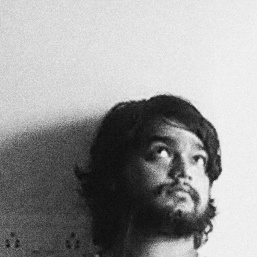The poetry collection “Disinheritance” by John Sibley Williams (Apprentice House, 2016) carries a sense of weight and burden of many kinds but primarily of the private kind, of private memories, histories, families, of the past, present and the future.
The poem “Bone River (i)” is the first in the collection, opening with:
“Our child experiments with her
limbs, displacing air and
waiting for the vacancy to fill.”
There undoubtedly is a lyrical quality to Williams’ work. He navigates mundane private memories, the everyday, and adds subtle touches of flourish to them. In today’s world of urgency, this gives a reader a sense of pause. Today, moments of pause are undoubtedly political, as well as existential. And it is precisely there that things sometimes become muddled.
In “Salmon Run” the poetic voice expresses hopelessness with a deep sense of unmentioned guilt and regret. The poet eventually shrugs this off; these mistakes have been committed by forefathers before.
“inside so long. Shores erode and all
of a sudden we are chin-deep and vanishing
upstream in bundled schools toward whatever it was our
great-grandfathers were,
toward the temporary holiness of knowing
all my mistakes have been made before.”
The lines evoke a beat-like mysticism, a search for redemption. But a redemption from what exactly? This sense of guilt, of mistakes, is something I’m terribly uncomfortable with, if coated in ambiguous words. They appear too conservative in their tone. But at the same time, when put within a context of existentialism, it all suddenly makes sense. Thousands of years of human consciousness, of philosophy, and here we are, still, with our same philosophical predicaments, unresolved.
In the same poem, Williams leaves no room for criticism as he moves on. The voice seeks, looks forward to a new beginning, away from history, away from the mountains, from the source, and claims not to look back.
“River, angry
old river, I understand your need to run
swiftly from the source. I too don’t look back
at the mountains, so distant, dawn-red,
where I am headed to spawn.”
Like salmon, we flow down the river and swim up again. Stuck within the limits of our species we claim and hold on to a façade of progress. This cyclical nature of human lives, fueled by the process of reproduction, becomes a central ground to work on for Williams.
In “Grief is a Primitive Art” he writes:
“and faith
has forever been rendered
a shallow cup
inches from our lips.”
Reaching the existential limits of human lives, Williams does not fail to note the limits of identities that we find ourselves stuck within. Separated from the sense of belonging that families provide us, he paints a violent picture of the family unit.
Perhaps drawing from radical feminism in the poem “Oppenheimer,” the family is presented as a unit of belonging but also the primary source of violence.
“over your heart, then releasing. Son
and daughter and lover and home, how purified
we emerge from having expressed
and meant them, as if some great voice said
be
and erased all other verbs.
Mother we call the beauty in
what cannot be possessed,
and father, where are you
but in the violence it takes
to create her?”
In “A Dead Boy Distinguishes Proximal from Distal” neither is a child spared:
“I learned young the difference
between feeding and being fed,
pushing and the pushed.”
The violence of human life (within the family, in childhood, of growing up) is explored in Williams’ work without a sense of proselytizing or of the confessional. His work captures the universal sense of being born within this human body with all its limitations.
Politics it seems in Williams’ work is not merely at the level of the economical or the social but at the primary level of being.
In “Bone River (iii)” he writes:
“At night, sometimes, I hear them
grind dreamlessly against cold sheets,
longing
for something not yet named. Those
perfectly formed hands, so like mine,
alive with unrevealed obligations.”
The collection “Disinheritance” is as much about letting go or the inability to, as it is about the difficulty of grasping towards something alien.
 Debarun Sarkar is an alumnus of English and Foreign Languages University, Hyderabad and Presidency University, Kolkata where he studied English and Sociology respectively. He currently lives in Calcutta.
Debarun Sarkar is an alumnus of English and Foreign Languages University, Hyderabad and Presidency University, Kolkata where he studied English and Sociology respectively. He currently lives in Calcutta.


0 comments on “Guilt and Redemption in “Disinheritance” by John Sibley Williams”